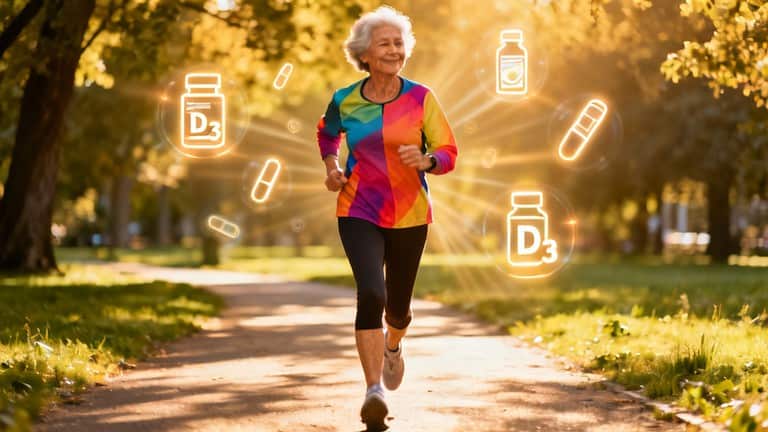Are you over 60 and struggling to get up from chairs or climb stairs without feeling weak? You might be doing everything right with exercise, but your legs could be missing key nutrients.
This article uncovers five essential vitamins that can dramatically improve your leg strength, backed by insights from top Japanese doctors.
1. Electrolytes: The Foundation for Muscle Function
Electrolytes like sodium, potassium, and magnesium are crucial for sending electrical signals to your muscles. Without them, your leg muscles can’t contract properly, leading to weakness and fatigue.
Many seniors don’t get enough electrolytes, even if they drink water. Plain water isn’t enough—you need these minerals to hydrate cells and support strength.
Key Benefits of Electrolytes
- Improve muscle contractions and endurance
- Reduce cramping and balance issues
- Enhance energy levels and mental clarity
- Support heart health and blood pressure
Studies show seniors with optimal electrolyte levels have 40% better muscle function. To make your own electrolyte drink, mix 1/4 teaspoon of sea salt with 32 oz of water, add lemon juice, and drink it in the morning and afternoon.
2. Liposomal Glutathione: The Cellular Protector
Glutathione is your body’s master antioxidant, fighting inflammation and repairing cells. As you age, production drops, making supplements essential.
The liposomal form is wrapped in fats, so it survives digestion and reaches your cells directly. This helps protect mitochondria—the energy powerhouses in your leg muscles.
How Glutathione Boosts Leg Strength
- Repairs mitochondrial damage for more energy
- Increases muscle strength and walking speed
- Reduces recovery time after activity
- Supports liver and kidney function
Research found a 35% increase in muscle strength with glutathione supplementation. Take 500–1000 mg daily on an empty stomach for best results.
3. Oil of Oregano: The Immune Booster
Oil of oregano contains carvacrol and thymol, natural compounds that fight infections and reduce inflammation. A weak immune system can attack muscle tissue, causing wasting in your legs.
By eliminating hidden gut issues, it helps your body absorb nutrients better and stop muscle breakdown.
Benefits for Leg Health
- Fights chronic inflammation that weakens muscles
- Improves digestion and nutrient absorption
- Boosts immune response to preserve energy
- Supports respiratory health for oxygen delivery
Take 150–200 mg with meals for 2–3 weeks, then take a break. This cycle maintains gut balance while strengthening your legs.
4. Vitamin D3: The Muscle and Bone Activator
Vitamin D3 is actually a hormone that controls muscle function and bone density. Over 80% of seniors are deficient, which leads to poor balance and higher fall risk.
It helps your body absorb calcium and build new muscle fibers, making your legs stronger and more responsive.
Why Vitamin D3 Is Essential
- Triggers muscle protein synthesis in leg cells
- Strengthens bones that muscles attach to
- Improves nerve-muscle communication
- Reduces inflammation and supports mood
Studies show supplementing with D3 can reduce falls by 78%. Take 2000–5000 IU with a fatty meal in the morning, and pair it with vitamin K2 for best effects.
Putting It All Together for Stronger Legs
These four vitamins work together to address nutrient absorption, energy production, and inflammation. Start by adding electrolytes to your routine, then incorporate the others based on your needs.
Consistency is key—many seniors see improvements in leg strength and mobility within weeks. Always consult with a healthcare provider before starting new supplements, especially if you have existing conditions.
By focusing on these overlooked nutrients, you can build a solid foundation for strong, stable legs well into your senior years. Take action today to feel more confident and active every day.








